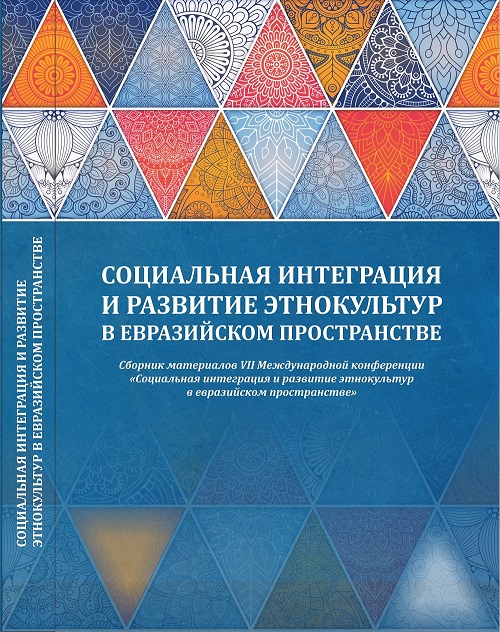SOME PROBLEMS AND PROSPECTS FOR PRESERVING THE SOCIETY'S INTEGRITY IN A CHANGING ETHNO-CULTURAL SPACE
Main Article Content
Abstract
The modern ethnocultural space is in a constant state of variation due to the processes associated with globalization. This raises serious concerns about the possibility of preserving the integrity of society and its ethno-national wealth. The Russian methodology presents a range of problems associated with the need to resist destructive tendencies, and also suggests measures to overcome similar crisis phenomena. The article analyzes some of the most pressing problems at the moment, such as the difficulty in resolving contradictions associated with the differences in the ethnic and cultural attitudes of migrants and the indigenous population, as well as the lack of timely government decisions due to the need for coordination at all levels of government. It also identifies possible prospects for overcoming negative phenomena and preserving the integrity of the ethnocultural space.
Downloads
Article Details

This work is licensed under a Creative Commons Attribution-NonCommercial-NoDerivatives 4.0 International License.
References
2. Костина А.В. Россия как полиэтническое государство: особенности и проблемы современного развития // Знание. Понимание. Умение. 2010. №2. С. 107-116.
3. Кургузов В.Л. Национальное культурное пространство: к проблеме теоретического осмысления феномена // Вестник Полоцкого государственного университета. 2015. № 7. С. 105-108.
4. Мельницкая Ю.А. Государственно-общественное партнерство в сфере межнациональных отношений // Власть и управление на Востоке России. 2018. №1 (82). С. 85-93.
5. Ноянзина О. Е., Авдеева Г. С., Гончарова Н. П., ОмельченкоД. А. Этнокультурное пространство Алтайского края: реализация политики национальных интересов государства // Известия АлтГУ. 2014. №2 (82). С. 248-252.
6. Сафар М.Я. Сохранение целостности национального культурного пространства как необходимое условие выхода из кризисных состояний общества // Россия: тенденции и перспективы развития. 2016. №11-3. С. 94-96.

